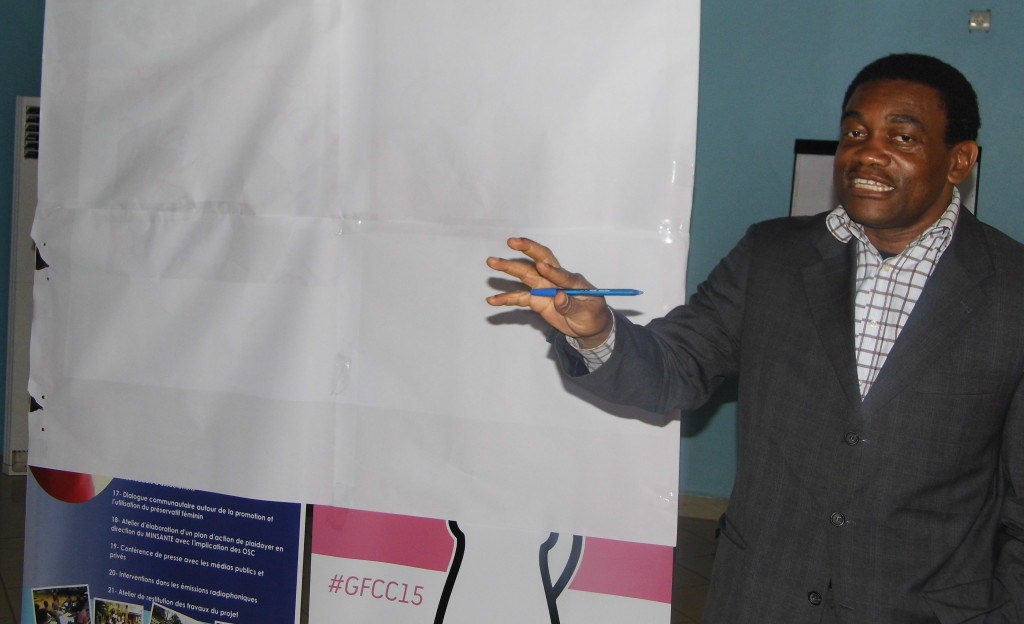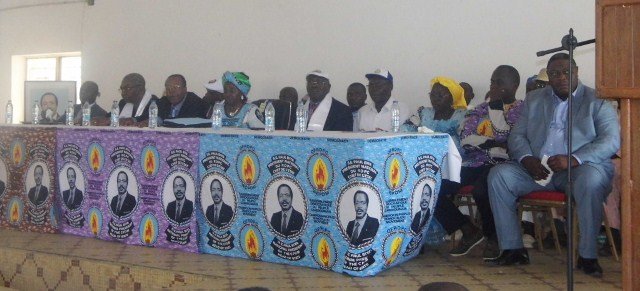 Municipal councilors recently trained on decentralization and social accountability in Cameroon have shared their knowledge on the issues during a series of workshops organized in Yaounde, the nation’s capital.
Municipal councilors recently trained on decentralization and social accountability in Cameroon have shared their knowledge on the issues during a series of workshops organized in Yaounde, the nation’s capital.
On the overall seven councils that constitute Yaounde, three have been shortlisted within the frame work of the project titled: “strengthening grassroots citizens’ participation in the implementation of decentralization in Cameroon”. The three councils which are Yaounde I, II and VI through their municipal councilors are the first in the Center region to experience the two year project initiated by the NGO Inter Faith Vision Foundation Cameroon (IVFCam). Each of the three councils was represented by three municipal councilors drilled on the concepts of decentralization and social accountability in Cameroon. The project that runs from 2015 to 2017 seeks to sensitize local councils and citizens on a participative and concrete implementation of decentralization. It targets six main regions of the country with identified NGOs acting as focal points of IVFCam. Positive Generation, local based NGO in Yaounde acts as focal point in the Center region. Positive Generation after a series of focus discussions with heads of neighbourhoods,mayors and trainings of councilors has organized three workshops hosted by the councils chosen for the project. It is with regard to the trainings acquired by the targeted groups that Positive Generation launched its series of workshops in the nation’s capital.
During the different workshops, municipal councilors acting as main facilitators in order to highlight the participants convened, have shared their knowledge and experiences in line with practical issues observed in their areas of administration. The broad concept of decentralization was deeply explained as: “an administrative system through which the legislator recognizes to some territorial councils, the right or the power to administer themselves”. Decentralization as was explained to participants has three fundamental principles which are: the concept of local affairs, the principle of co-administration of the territory and the principle of autonomy. Participants, most of who were municipal councilors have nurtured the will to strengthen and actively participate in the decentralization process. This is the case of Yaounde II, where councilors have promised to intensify field visits in neighbourhoods as of tradition in a bid to sensitize their populations through what they call “community animation and development”. The decentralization process has witnessed steps forward with several resources and competences transferred already to some local councils as outlined by the delegated supervisor of IVFCam, Franklin Atemfor. He said; there is need to implicate councilors who are the main decision makers and those having the final word in the voting process.
The issue of social accountability was equally explained to the numerous participants of Yaounde I, II and VI. Mr Bikoro, municipal councilor in Yaounde I simplified his exposé on the subject as: “giving management accounts of resources to the populations of an area”. Numerous recommendations were made by the participants at the level of local councils, religious leaders, media and technical staff of the state just to name this few. Media practitioners have been pointed out as one of the main actors in informing, educating and sensitizing the audience on technical issues related to decentralization. Mr Nonze Daniel, technical resource person working with Positive Generation on his part called for collaboration between the populations and local councils while appreciating the quality of exchanges and interventions made by the participants.
The workshop that kicked off last March 15, 2016 in Tsinga at the Yaounde II conference hall, ended on March 21, 2016 at the Yaounde I council with participants approving the initiative of IVFCam and calling for other workshops that will help to broaden the knowledge of key actors and populations in the decentralization process which to them is still at a slow pace. There is high need to further implicate councils in the decentralization process and mostly women who administer only 20 percent of councils nationwide.
By Elise Kenimbeni




